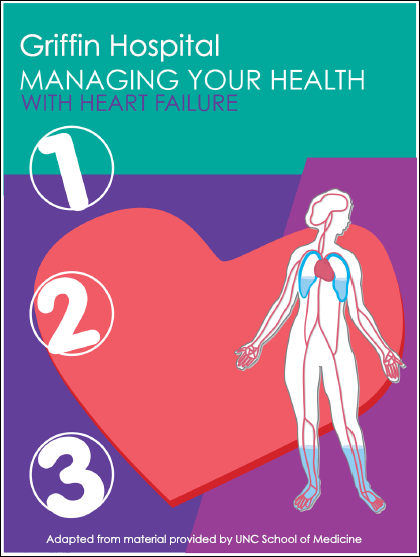A vital aspect of participatory medicine is helping patients learn how to participate. This week I saw a great example of someone who’s doing it right. Here’s the story, including the patient aid for download.
 We hear a lot about “patient-centered”: patient-centered care, patient-centered thinking, everything. Frankly, a lot of it strikes me as patient-centered paternalism: people mean well, but patients sense that the thinking didn’t happen while standing in patients’ shoes, because the advice, policies, and publications just don’t hit home. It’s like somebody guessed what you want, instead of knowing (because they’re like you).
We hear a lot about “patient-centered”: patient-centered care, patient-centered thinking, everything. Frankly, a lot of it strikes me as patient-centered paternalism: people mean well, but patients sense that the thinking didn’t happen while standing in patients’ shoes, because the advice, policies, and publications just don’t hit home. It’s like somebody guessed what you want, instead of knowing (because they’re like you).
A couple of years ago I learned about Planetree, a terrific, small organization in Connecticut that’s been thinking from the patient’s point of view for thirty three years. (Yes, since 1978. Why are they not better known??)
This week I attended a live webcast at a “Planetree designated” hospital, Griffin Hospital, in Derby CT, produced by HealthLeaders Media. When somebody’s truly patient centered, you rarely hear a puzzled “Do people really need that?” or “Isn’t this good enough?”, because they start with what patients want. (See founders’ story at bottom.)
A great example is this booklet about CHF (congestive heart failure), which Griffin Hospital was kind enough to share. (Click the image to download the entire PDF, (1.7MB).) In my day job I did a bit of instructional development, so I can appreciate how well this was done: the “to-do” items are clearly presented, with NO extraneous explanation, and top-class use of icons and images. It’s all essential information, clearly presented, and nothing else. It’s what you need to do to succeed as a patient.
The cover graphic is a good example. Look at the person: fluid accumulating in the lungs and the legs. Intellectually I knew that’s what CHF is, but never has it been so instantly clear.
They produced the text at fourth grade reading level, not the eighth grade that we often hear mentioned for health literacy. Why? If you’ve ever cared for an elder with CHF, you know they can be low-energy, and the less attention required to do the right thing, the better the odds of “compliance” – or, as I like to call it, achievement. After all, whose goal is it?
And that’s the point. If the goal of healthcare is to help patients have the life they want, then it makes sense to start from that question, and build a care plan on that foundation. Planetree president Susan Frampton captured it perfectly: they ask patients the most powerful participatory question in the world – “Why is it important to you to stay alive?”
With that as a shared goal, there’s built-in motivation – and the patient has reason to use a great tool like this.
What do you think? Other Planetree hospitals, say hi in a comment! Got more stories of how you help patients participate in their goals? And anyone, if you know of other truly patient-centered aids like this book, let us know.
_______
See also: Planetree’s beliefs and history – “We are all caregivers,” compassion, empathy, and the poignant story of the organization’s founding, as Angelica Theriot “sat staring at the cold, blank walls of her hospital room. Nurses hurried in and out without regard to Angelica as an individual, leaving her to spend hours feeling lonely and afraid.” She did something about it – in 1978. That’s one heck of an empowered patient, eh?






Hi! :-D
Dave,
Goes to show how simple and to the point can teach patients what they need to know to monitor their own health as well as know when to call their doctor. No bells, no whistles, “just the facts mam.” Thanks for sharing!
Dave, yes very insightful article about patients responsibility. Of course very few want to take responsibility for themselves! Thank you!
Melissa Cullen
http://sleeppeacefully.net
keetsa
Melissa, I don’t understand – did I say anything in this post about patient responsibility? Or what connection are you seeing?
Thanks for sharing this. This is a great booklet; however for the updated version- patients and family members should have input to make sure everything they want to know is included.
The hallmark of “”patient- and family-centeredness”is having patient input at all stages- particularly, at the beginning- of every project.
I will say though, that the booklet assumes folks with CHF can actually reach their ankles or knees to press each morning, and can SEE the result. In my experience, that’s a stretch–no pun intended. Would be great to include tips about how others may support one in this process.
Hi,
Thanks for sharing this information. There are some conferences happening in which medical specialty would be “Family Medicine” and here is one of those conferences the conference details are given below.
Respiratory Therapists: Oxygen Therapy: What you need to know to get it right for your patients. This webinar discusses evaluation and testing requirements for Long Term Oxygen Therapy (LTOT) treatment and guidelines.
Source: https://www.emedevents.com/online-cme-courses/webcasts/oxygen-therapy-what-you-need-to-know-to-get-it-right-for-your-patients